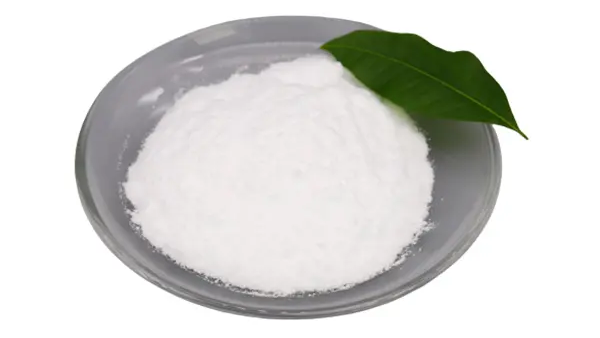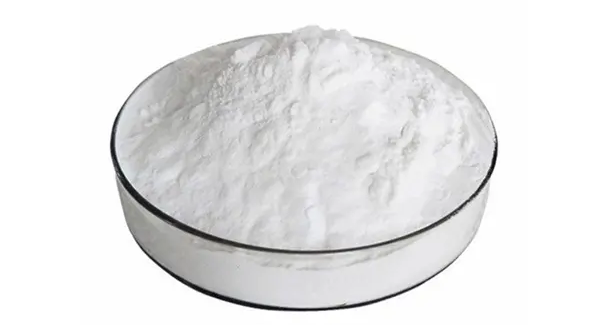Table of Contents
ToggleWhat is trisodium citrate?
Sodium citrate, also known as trisodium citrate, is an organic acid sodium salt. It appears as white to colorless crystals, has a cool and salty taste, and is stable in the air. The chemical formula is C6H5Na3O7. It is soluble in water and difficult to dissolve in ethanol. The aqueous solution is slightly alkaline. It is often used as a buffer, complexing agent, bacterial culture medium, and is used in medicine as a diuretic, expectorant, anticoagulant, and in food. , beverages, electroplating, photography, etc. It is one of the basic agents in biological experiments.
What are the performance characteristics of trisodium citrate?
Sodium citrate is the most important citrate. It is mainly produced by fermenting starch substances to produce citric acid, and then neutralizing it with alkaline substances. Its biochemical properties are as follows:
1. Safe and non-toxic
Since the raw materials for preparing sodium citrate are basically from grain, it is absolutely safe and reliable and will not harm human health. The Food and Agriculture of the United Nations and the World Health Organization do not set any limit on its daily intake, and it can be considered drug-free.
2. Biodegradability
After sodium citrate is diluted with a large amount of water in nature, part of it turns into citric acid, and the two coexist in the same system. Citric acid is easily biodegraded in water through the action of oxygen, heat, light, bacteria and microorganisms. Its decomposition pathway is generally through aconitic acid, itaconic acid, and citraconic anhydride, and then converted into carbon dioxide and water.

3. Complexing ability
Sodium citrate has good complexing ability for metal ions such as Ca2+ and Mg2+, and also has good complexing ability for other metal ions, such as Fe2+ and other ions.
4.Other performance
Sodium citrate has excellent solubility properties, and its solubility increases as the water temperature increases. Sodium citrate has good pH adjustment and buffering properties. Sodium citrate is a weak acid and strong alkali salt. It can form a strong pH buffer with citric acid, so it is important in some situations where the pH is not suitable for large-scale changes. In addition, sodium citrate also has excellent retarding and stabilizing properties.
Trisodium citrate has a wide range of applications
Sodium citrate has many of the above-mentioned excellent properties, so it has a wide range of uses. Sodium citrate is non-toxic, has pH adjustment properties and good stability, so it can be used in the food industry. Sodium citrate is used as a food additive, mainly used as a flavoring agent, buffer, emulsifier, swelling agent, stabilizer, etc. In addition, sodium citrate is used in various jams, jelly, juices, beverages, etc. when mixed with citric acid. Gelling agent, nutritional supplement and flavoring agent for cold drinks, dairy products and pastries.
1. Food
Sodium citrate is mainly used as a food additive, with the largest demand. It can also be used as a flavoring agent, swelling agent, stabilizer, buffer, and emulsifier. In addition, sodium citrate and citric acid can also be used as various Flavoring agents, gelling agents and nutritional supplements for pastries, cold drinks, juices, beverages, cold drinks, dairy products and jams.
2. Medicine
In 1914, it was discovered that sodium citrate has a long-lasting anticoagulant effect and can preserve blood for a long time. In 1915, at the Malta-Mount Sinai Hospital in New York, Richard Levinson demonstrated that the use of sodium citrate as an anticoagulant would eliminate the need for blood transfusions to occur at the same time and at the same place. Operations were transformed into the blood bank system we use today. Sodium citrate also has a preservative effect and is used for long-term storage of some drugs.

3. Construction industry
In the construction industry, sodium citrate can be added as a retardant when making concrete, which can improve the frost resistance, compression resistance and tensile resistance of cement products. Under the social conditions of increasingly serious environmental problems, the sulfur dioxide in the exhaust gas of some smelting plants seriously exceeds the standard. Studies have shown that the use of sodium citrate can remove sulfides in industrial exhaust gas.
4. Electroplating and manufacturing
Because sodium citrate has good complexing properties, it is also used in the electroplating industry. The electroplating process has developed rapidly. Neutral citrate nickel plating has the advantages of environmental protection, pollution-free, easy maintenance, low corrosion, and excellent coating performance, so it has been used on a large scale in industrial production.
5. Industrial cleaning
Due to the extensive use of sodium tripolyphosphate in the washing industry, the washing sewage contains a large amount of phosphates, making the water nutritious. Algae quickly breed and cause red tides. This lack of oxygen in the water greatly harms the survival of aquatic organisms. This has become an environmental protection Urgent problems. Since the 1970s, some countries have restricted phosphorus content in detergents. Replacing sodium tripolyphosphate with sodium citrate can not only improve the decontamination effect, but also reduce environmental pollution.。
The difference between sodium citrate and trisodium citrate
Sodium citrate and trisodium citrate are two related compounds, both derived from citric acid, but they differ in their chemical compositions and applications.
Sodium Citrate:
1. Chemical Composition: Sodium citrate, also known as sodium citrate dihydrate, has the chemical formula Na₃C₆H₅O₇·2H₂O.
2. Function: It is commonly used as a food additive, mainly as an acidity regulator and emulsifier.
3. Applications: Sodium citrate is utilized in food and beverage production to control acidity, enhance flavors, and stabilize emulsions, especially in processed cheese products and soft drinks.
Trisodium Citrate:
1. Chemical Composition: Trisodium citrate, also known as sodium citrate, has the chemical formula Na₃C₆H₅O₇.
2. Function: Like sodium citrate, it acts as an acidity regulator and emulsifier, but it also serves as a chelating agent and buffering agent.
3. Applications: Trisodium citrate finds applications in a broader range of industries, including food and beverage production, pharmaceuticals, and household cleaning products. It contributes to the stability, texture and taste of various products.


